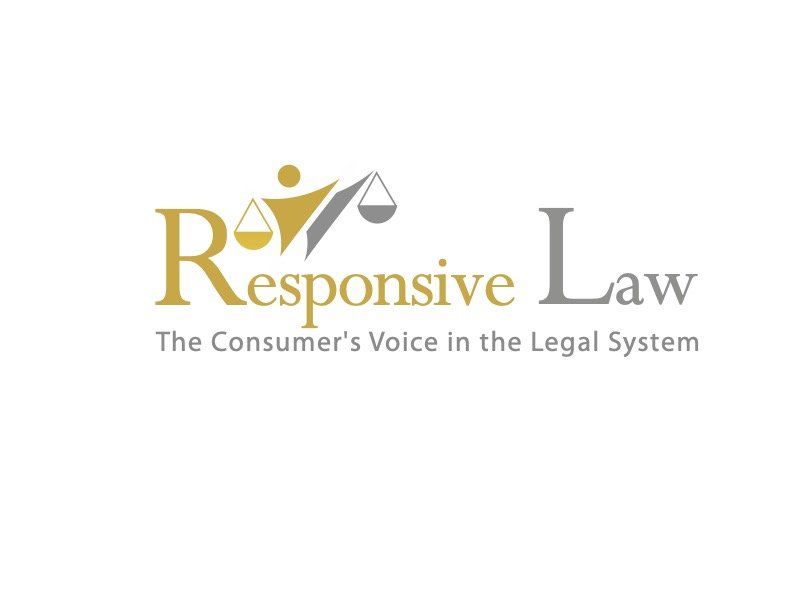Florida follows Arizona and Utah and moves ahead of the rest
Crispin Passmore • June 30, 2021
Regulatory sandbox proposed to help drive innovation and close access gaps

In November 2019, Chief Justice Canady of the Supreme Court of Florida wrote to the then President of the Florida Bar authorising a wide ranging study into reform of the regulatory arrangements of the State Bar. It follows a pattern of leadership by State Courts around the US to consider major reforms to lawyer regulation to tackle the huge gap between supply and demand of legal services across the US. But in Florida there was a special twist: the Court was asked to write to the State Bar by John Stewart, the President of the State Bar. It is to the credit of Stewart that he has now led that Special Committee to produce a wide ranging final report
that argues reform that could generate significant benefits for the citizens and business in Florida and perhaps across the US⭐︎. In regulatory matters
like football*, leadership matters.
What does the report recommend? The most significant proposal is for the establishment of a regulatory sandbox. For those new to the concept, a sandbox is simply a safe place to play with new ideas, created by regulators to allow businesses, lawyers and entrepreneurs to work in ways that would not normally be allowed within the existing rules. Sometimes regulatory restrictions are waived, sometimes 'no enforcement' letters are provided and sometimes specific frameworks are created that allow new models. By doing this in a controlled environment a regulator can test change, requiring specific and tailored controls that manage risk and collect data to assess the impact of new ideas. So a new product or business model might be allowed on condition that it is not sold to vulnerable consumers, or that specific research is undertaken to see the impact on vulnerable consumers, or broader data gathered to inform future permanent changes.
Some commentators think that sandboxes miss the real problem: namely that the US's overly restrictive unauthorised practice of law regime, combined with the lawyer monopoly on how that regime is designed and enforced means that innovation, growth and competition are designed out of the system in the interests of lawyers. That argument may well be correct: countries without such a restrictive regime simply do not have greater ethics problems than the US. In a rational world that would lead to the removal of the guild monopoly - especially in the home of free markets. But the reality is that the US has a similar number of trades and professions with licensing restrictions (Too many states have let rent-seekers run amok) as the European Union.
It is of course true that removing the economic rules while retaining ethics rules would be a big step towards increasing innovation but the harsh truth is that however strong the leadership from people like John Stewart, it is hard to deliver radical change when State Bars are accountable to their lawyer members and Justices are often elected or appointed under political influence. So the move to a sandbox is a significant step and should be welcomed.
The committee also considered reforms in specific areas such as advertising, referral and fee sharing. It rejects radical change in these areas - at least for now - but has been specific and explicit that the sandbox, that it calls the Law Practice Innovation Laboratory Program (or LAB), is the arena for testing major changes.
It does suggest that 5.4 of the Florida Rules (based on the ABS model rules) be reformed without waiting for the sandbox so that passive ownership of law firms is allowed. This brings it into line with DC but does not offer a route to the real investment needed to offer technology based services. State Bars do need to understand that the only way to get legal services to the middle classes, poorest citizens and small businesses is via technology. And we should all know by now that the only real business model for serious tech businesses is large scale investment combined with long term horizons - neither are things that law firms are renowned for.
While rejecting immediate more radical change to 5.4 to allow active ownership the Committee recognised the reality of the potential that comes from a active non-lawyer ownership:
"While passive ownership could allow for more ambitious ventures between law firms and technology companies, the other changes being proposed regarding fee splitting may also achieve the same goals but with fewer risks. If passive ownership were to be explored, it should be done in the context of the proposed Law Practice Innovation Laboratory Program so that safeguards can be put in place and data collected.
Within the Law Practice Innovation Laboratory Program eliminate the restriction on fee sharing with nonlawyers under Rule 4-5.4.
The subcommittee concluded that there are benefits to allowing fee sharing with nonlawyers. The benefits include opening up new ways that lawyers can work with technology companies or other nonlawyer companies and individuals to provide more innovative ways to deliver services, and in some cases, provide consumers with more information useful to the selection of legal counsel. An innovation that is hindered by the current rule could include an arrangement between a technology company and law firm to streamline referrals, the engagement process, or case flow for situations where the client wants extra help. By not allowing a revenue share between others and the law firm, these types of relationships are inhibited."
There are more than 21 million citizens in Florida. And over 2.5 million small businesses. We know how much the existing legal services industry fails to meet the needs of the vast majority of potential clients. Most attorneys cannot afford their own services and small businesses do anything that they can to avoid starting the clock running in lawyer fees for everyday problems. That is why businesses like RocketLawyer and Legal Zoom have thrived. With Legal Zoom announcing its IPO price at $28
today it will raise over $500 million, based on an enterprise value of $5 billion, to pay down debt and continue its investment - as it has for more than 20 years. Rocket Lawyer took $223 million
investment just a few months ago and has reached something like 20 million US adults. That is what it takes to shift the needle on the delivery of legal services and the current rule book prevents that where it touches upon the practice of law. Who exactly is 5.4 protecting?
There is a growing recognition among lawyers that change is needed. The Florida State Bar's latest member survey
shows that almost half of respondents thought that the legal needs of Florida citizens were either not being met or were neutral. Only 7% strongly agreed that they were being met. Furthermore, almost a quarter of respondents thought the ban on fee sharing restricted their business development opportunities (and a further 23% were neutral). This may not be a majority but lets us remember that if in five years time a quarter of Florida lawyers have developed new fee sharing business opportunities we will have made a significant step forwards. Those that do not need to fee share to develop their business are not compelled too. Those that do not want external investment or non lawyer managers are not compelled to have them. But they should not get to veto others. That only 9% thought that non-laywers should be able to to become shareholders is no reason not
to change the rules. Innovation comes from the margins not the mainstream and inhibiting it is a conspiracy again the public rather than an ethical issue.
Focusing on ethics for one moment. It raised a smile to read that a major concern of survey respondents was the weak ethics of fellow lawyers. Why do these same lawyers fear that entrepreneurs, business leaders, innovators and investors are likely to undermine the ethical practice of law when they think that lawyers have already done that?!
Reading the comments to the survey reveals how little lawyers understand how non-lawyer ownership of law firms works where it is allowed. In most jurisdictions there are controls on the non-lawyer owners or managers of law firms - approval process on character and suitability, codes of conduct that apply to them and discipline systems that hold them to account. And that all includes ensuring that they do not go beyond running the business - regulated lawyering is left to regulated lawyers. Deleting 5.4 has no impact on the ethics rules - duties to the court, client and the public, protection of client money and lawyer-client relationships are all protected elsewhere in the rule book. Rule 5.4 is an economic rule - ie it is their to restrict economic activity and competition between lawyers and is dressed up as ethics, but it does not survive basic scrutiny. And the failure of the traditional law firm model to meet the huge and changing needs of individuals, small and large business is evidence of the need for change.
It is depressing, given the evidence on unmet legal needs across the US and world, that more Florida lawyers responded saying that there were too many lawyers (29%) than thought that the affordability of legal services was a problem (23%). Perhaps the answers can be reconciled by positing that Florida lawyers recognise that the solution to the access to justice crisis is not more lawyers but that paralegals, technology and external investment are the routes to success?
The member survey points to a largely unhappy profession with low morale, a fear that a law career is less attractive and less valued by the public and with low investment in technology. 45% reported that they did not use technology beyond email and basic office style software. 15% didn't know if they did! And of those that did use other tech they cited Teams and Zoom - showing they do not see them as core parts of office productivity tools.
It is clearly time for change and the work of the Special Committee is one more step forward. Other States should take heed. Major businesses will not open offices in every State but will likely form regional hubs. First mover advantage will shape the future distribution of legal jobs and the size of Florida's population puts it in pole position.
Those that want to see change happen should show their support for the proposals. The Supreme Court will come under remarkable pressure from traditional law seeking to protect their monopoly. If the USA is to build back better it needs its legal market to reach new clients, grow with technology that increases productivity and reduces costs, offer more choice to existing customers including individuals, small business and global corporates, and reach the poorest in new ways. The reforms proposed are good for lawyers, good for investors and good for citizens and the public. If the Court supports the proposals, we can expect to see the State Bar work up the detail and then after a period of public comment the Court will make its decision. Once a State the size of Florida makes the step the pressure on others will simply increase.
⭐︎ I provided pro bono advice and support to the Committee
*For my US readers, last night England beat Germany at soccer in a tournament. That doesn't happen often.

The Legal Tech Fund ran the best event for innovators int he legal market that I have found. TLTF 2023 was a a great opportunity to learn new things but best of all were the connections made and friends seen. These enabled new discussions and deeper debates about technology, capital deployment and liberalisation. TLTF 2024 is just one year away - I'm already excited.









